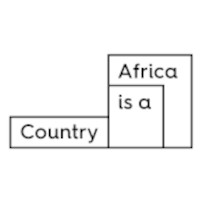Protesters in Maputo, Mozambique, Thursday, Nov. 7, 2024. Carlos Uqueio for AP Photo.
A decade ago, the kind of protest movement gripping Mozambique over the last few weeks would have been difficult to fathom.
By Ruth Castel-Branco – this post was first published on Africa is A Country: summary below by Vuka.news
Election Day and Fraud Allegations: On October 9, Mozambique held a general election. Many expected the ruling party, Frelimo, to manipulate the results, as they had during the previous year’s municipal elections. Widespread irregularities were reported, including “ghost voters,” fake observers, and ballot-stuffing. Journalist Tomás Vieira Mário noted that although “Frelimo may have won the elections, they lost the people.”
Election Results and Power Dynamics: The National Elections Commission reported that Frelimo received 71% of the vote, gaining 195 parliamentary seats. Podemos, the opposition party, gained 31 seats, becoming the main opposition. Opposition groups, including members of the National Elections Commission, contested these results, accusing the system of being “structurally rigged.” Elections are observed at polling stations, but final vote counts happen behind closed doors, giving Frelimo the advantage.
Assassinations of Opposition Leaders: Elvino Dias, a lawyer preparing a legal case for Podemos’ candidate, Venâncio Mondlane, was assassinated on October 19, along with Podemos leader Paulo Guambe. Police claimed the assassinations were linked to a “conjugal dispute.” Still, Dias had warned of his possible assassination and stated on Facebook Live that he had evidence of the true election results. Dias stated, “As for us, we died a long time ago. The vandals know where I live, which is why I have no reason to run away.”
Growing Support for Podemos and Mondlane: The assassinations sparked public outrage and support for Mondlane and Podemos. Founded by former Frelimo members, Podemos promotes “liberal socialism” and social justice. However, Mondlane, with a background as a preacher, has shown support for authoritarian populists, creating a mix of religious and political influence in his campaigns.
Protests and Strikes Following the Election: Mondlane called for a general strike, leading to widespread protests against Frelimo’s rule. People used tactics like banging pots, protesting at symbolic sites, and blocking roads. Police responded with force, using tear gas and live ammunition, resulting in arrests and deaths. The economic cost of these strikes is high, with an estimated loss of up to 2% of Mozambique’s GDP.
Frelimo’s Reaction and Internal Doubts: President Nyusi celebrated the election results, but some within Frelimo doubt the legitimacy of their landslide victory due to Mozambique’s poverty and crisis-ridden state. Frelimo leaders recognize that election rigging has damaged the party’s credibility.
Upcoming Constitutional Review of Election Results: The Constitutional Council is under pressure to review contested election results. Due to destroyed and manipulated records, verifying accurate results may require forensic investigation. Even if fraud is confirmed, high abstention rates might still favour Frelimo’s hold on power.
The Future of Opposition in Mozambique: Although Podemos and Mondlane have support, their alliance is fragile. Mondlane’s economic views may clash with Podemos’ “socialist” values, leading to potential internal conflicts. Mozambique’s protest movement is now too large and diverse to ignore, signaling that meaningful change will require justice for all.






